A Catholic school in the Lasallian tradition.


A Catholic school in the Lasallian tradition.


We acknowledge that St Michael’s College resides on the traditional lands for the Kaurna people and that the College respects their spiritual relationship with their country.
We also acknowledge the Kaurna people as the custodians of the Adelaide region and that their cultural and heritage beliefs are still as important to the living Kaurna people today.
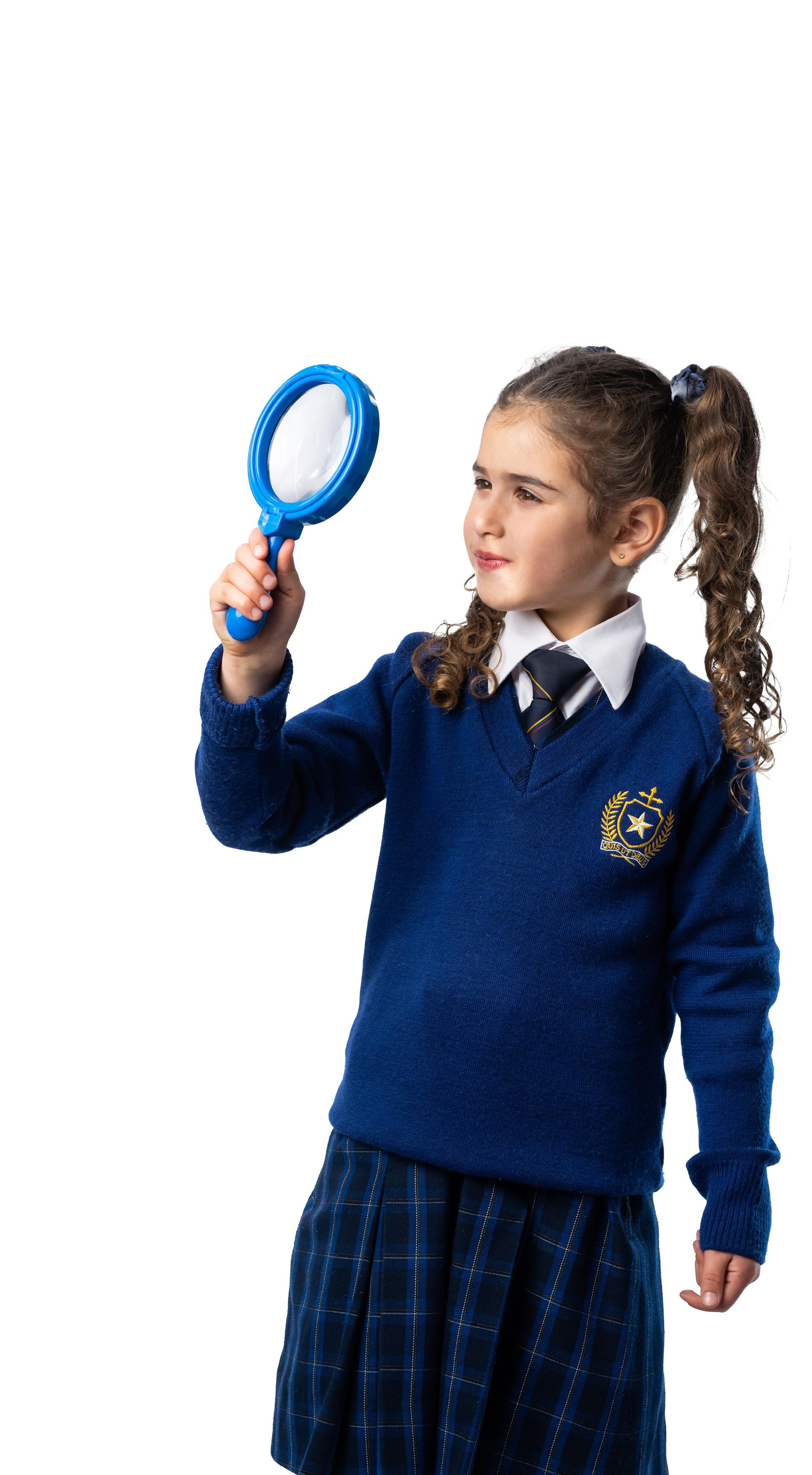
“To touch the hearts of your pupils and inspire them with the Christian spirit is the greatest miracle you can perform”.
St John Baptist de La Salle
St Michael’s College is a Reception to Year 12 Catholic college in the Lasallian tradition, founded in 1954 by the De La Salle Brothers. Located in the western suburbs of Adelaide, St Michael’s College comprises two campuses. The Primary campus is based at the original school site at Beverley with the Secondary campus located at Henley Beach. Currently one of the largest Catholic colleges in South Australia, St Michael’s College has 2048 enrolled students. Enrolment growth in the Primary campus will see it move to a four-stream model in 2024, and with the introduction of girls to Reception in 2021, the College will be fully co-educational by 2027.
The Secondary campus has been fully co-educational since 2008 and comprises a Middle School (Years 7 – 9) and Senior School (Years 10 – 12) structure.
The St Michael’s College community is comprised of a diverse range of cultural, social, and religious backgrounds all aspiring to a common purpose. The staff, students, and families of St Michael’s College work together to create an inclusive and respectful community where each individual is known, valued and cared for. This strong and vibrant partnership creates an environment that enables each person to feel confident to explore their curiosities, likes and interests, to flourish, and to fully realise their potential.
Through a quality Lasallian education inspired by the Gospel and a genuine concern for social justice, St Michael’s College students are empowered to choose who they become as people, learners and leaders in the world.
Governance of St Michael’s College rests with the Board of Directors under formal agreements constituted with the Trustees of the De La Salle Brothers. St Michael’s College is systemically funded by an agreement between the College Board and the South Australian Commission for Catholic Schools.
A quality Lasallian education “is realised by offering a community and personalised environment where individuals can flourish as human beings and where they are open to hope and have a positive sense of life.”
BrAlvaro
I have come that they may have life, and have it to the full.
(John 10:10)
Vision
St Michael’s College is a Catholic school in the Lasallian tradition which is committed to the human and Christian education of the young, especially the poor, through: Community
We are an inclusive and respectful community where each individual is known, valued and cared for, enabling them to feel confident to explore their curiosities, flourish and fully realise their potential.
Challenge
Individual growth is achieved through engagement, opportunity and recognition, underpinned by a positive learning culture that is authentic, challenging and supportive.
Choice
Through a quality Lasallian education, inspired by the Gospel and a concern for social justice, students are empowered to better choose who they become as people, learners and leaders in the world.
A total of 2048 students were enrolled at St Michael’s College in 2023.
Please refer to the breakdown below;
School attendance is managed and recorded using SEQTA, the College Learning Management system. Student absence is monitored closely and followed up as necessary. Absences recorded by the Pastoral Care teacher are monitored by the administration team. An automated SMS is sent to parents if there is an unexplained absence and Year Level Directors are provided with absentee lists daily.
Patterns of lateness or continued absences are also monitored by the Year Level Directors and Deputy Principal – Pastoral. Attendance data is used to inform action with a range of strategies and support structures in place if required.
In 2023, College income comprised Government funding, contributions from families and a number of other private sources.
Please refer to the table below for a breakdown:
Of these 59.5% were male and 40.5% female
*Noting that in 2023 Year 3, 4, 5 & 6 comprised male only students.
Thirteen students or (0.64%) were Indigenous with 15 students or (0.74%) with English as an Additional Language / Dialect (EAL/D).
In addition, the Inclusive Education faculty provided for the needs of 371* students with disabilities as assessed for the purposes of the Nationally Consistent Collection of Data (NCCD). This represents 18.12% of the 2023 student cohort.
*Noting 135 of these students are non funded (QDTP)
The table below indicates student attendance for 2023:
The College’s DMI (direct measure of income) was 103 in 2023. This score is used to determine the level of Government funding received.
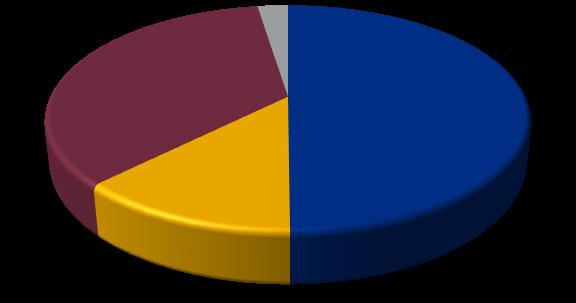
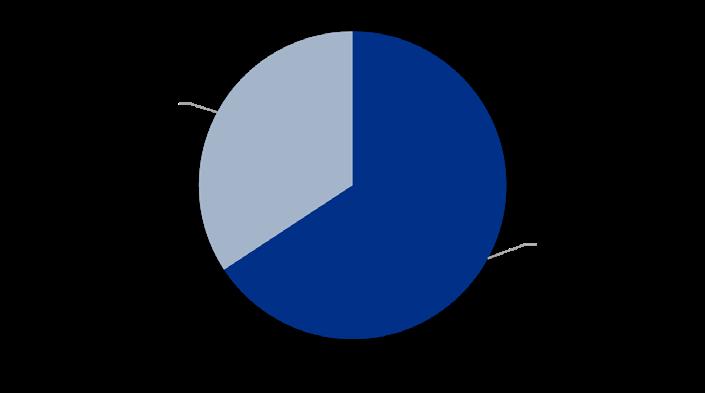
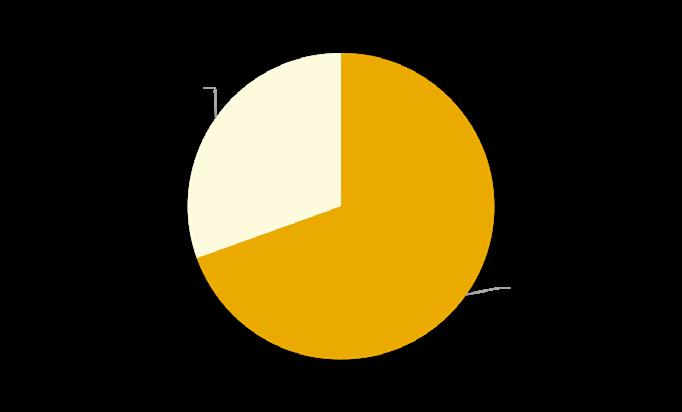
*Staff who identify as Aboriginal or Torres Strait Islander: 0
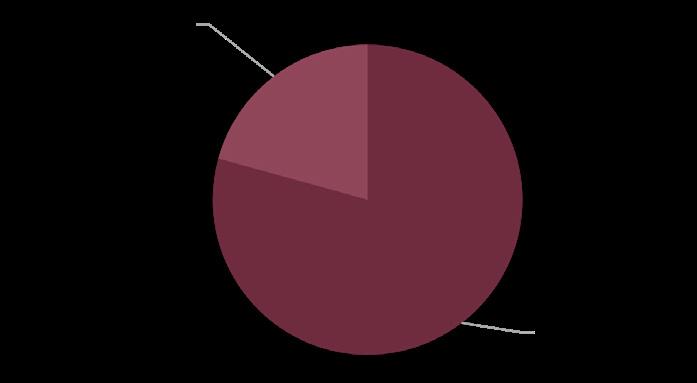
College staff hold qualifications relevant to their positions and all teaching staff are registered with the South Australian Teachers Registration Board.
All staff of St Michael’s College are expected to meet the requirements outlined in their position information document. A commitment to uphold and contribute to the Lasallian ethos, participate in professional development activities, and establish positive and effective relationships within the College community are but a few of the high expectations of all staff.
New teaching staff, permanent or contract complete the CESA Teacher Induction module at the commencement of their employment and permanent staff are required to complete the Graduate Certificate in Catholic Education within the first five years of employment.
St Michael’s College Strategic Direction 5 aims to foster personal and collective growth through community engagement. All Teaching staff and Education Support Officers (ESOs) participate in various learning opportunities, either manager-recommended or selfidentified.
Teaching staff engage with the ‘Clarity’ suite and Smart Lab training. Whole staff professional learning includes safety, risk, compliance, child protection, and first aid. ESOs take part in a professional learning day focused on team dynamics, improving mutual understanding and communication among team members.
In 2023, secondary teaching staff engaged in group professional learning throughout the year. Personal Professional Learning Plans (PPLPs) are guided by AITSL’s ‘Enabling the High-Quality Professional Learning Cycle’ and the Australian Charter for the ‘Professional Learning of Teachers and School Leaders,’ emphasizing relevance, collaboration, and a future focus. PPLPs may include accredited study, seminars, courses, mentoring, participation in professional learning teams, professional reading, or online learning, each led by experienced staff.
An end-of-year professional learning showcase highlighted diverse learning experiences and the willingness of staff to share knowledge, from seasoned educators to first-year teachers. This approach ensures continuous professional growth and community engagement, aligning with the strategic direction of promoting personal and collective development.
Sample of Professional Development undertaken by staff in 2023:
• ACER Understanding PAT online
• Senior Drama Forum
• Leading from the Middle
• Teaching the Humanities and Flourishing
• TAFE SA Food Safety
• Gifted Education Symposium
• Growing Faith Leaders: Encountering life to the full
• Centre for Change & Complexity in Learning – AI & Education Futures Conference
• CESA Aspiring Leaders
• Year 7 Crossways Performance Standards & Course Collaboration
• Student Voice, Advocacy and Inclusion
St Michael’s College staff are highly qualified in their chosen field and beyond as indicated by the sample profile of additional qualifications held by College staff:
• PhD in Economics Geography/Business
• Masters of Teaching
• Masters of Catholic Education
• Masters in Fitness/Personal Training
• Masters in Applied Theatre Studies
• Masters of Educational Leadership
• Masters of Primary Education
• Masters of Urban Studies
• Masters of Speech Pathology
• Graduate Degree in Sociology
• Bachelor of Business
• Bachelor of Science (Botany & Zoology)
• Bachelor of Applied Science (Human Movement)
• Bachelor of Psychology
• Bachelor of Visual Communication (Graphic Design & Illustration)
• Diploma in Nutrition
• Cabinetmaking & Carpentry qualifications
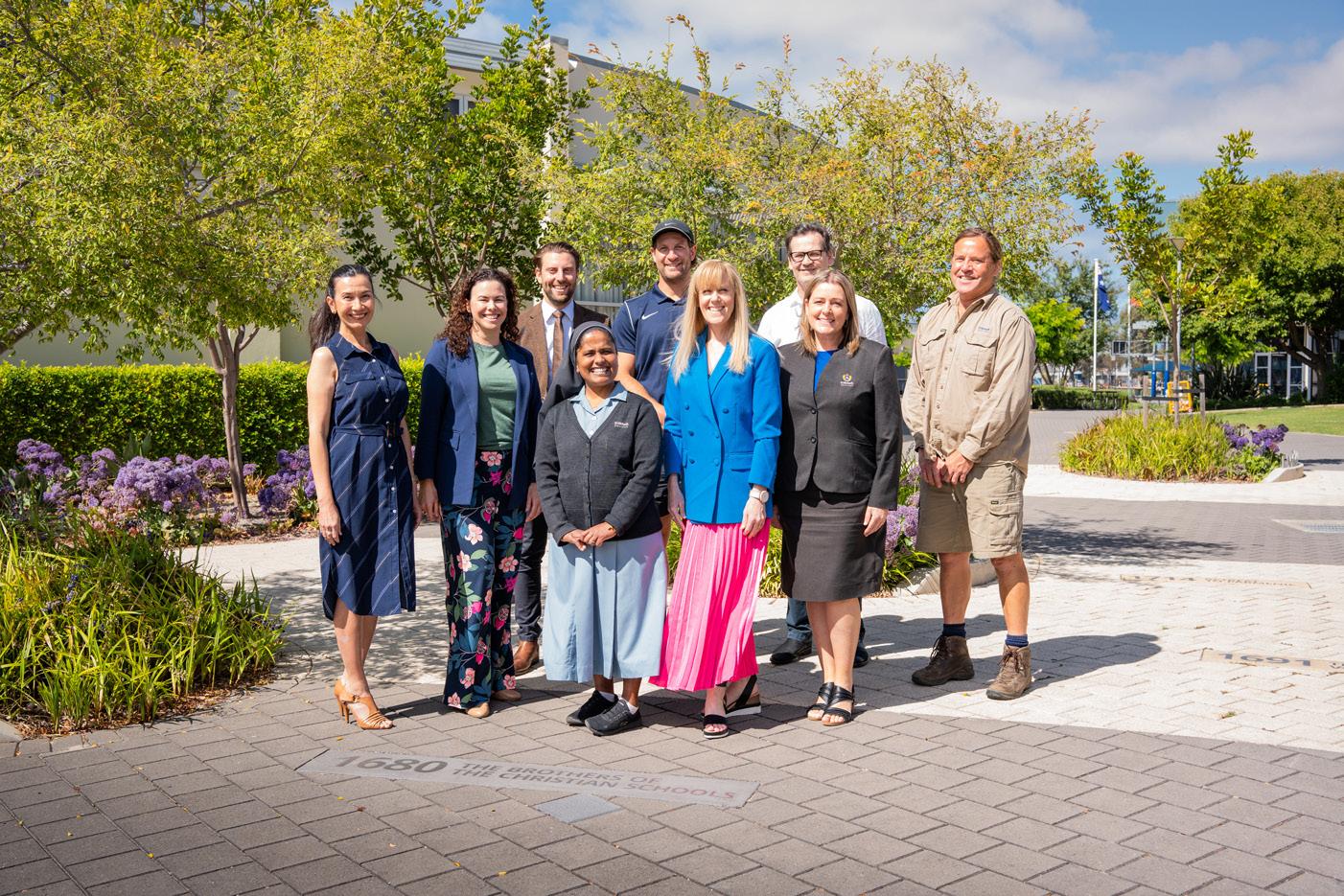

Upon completion of NAPLAN Testing this year, the following results were achieved
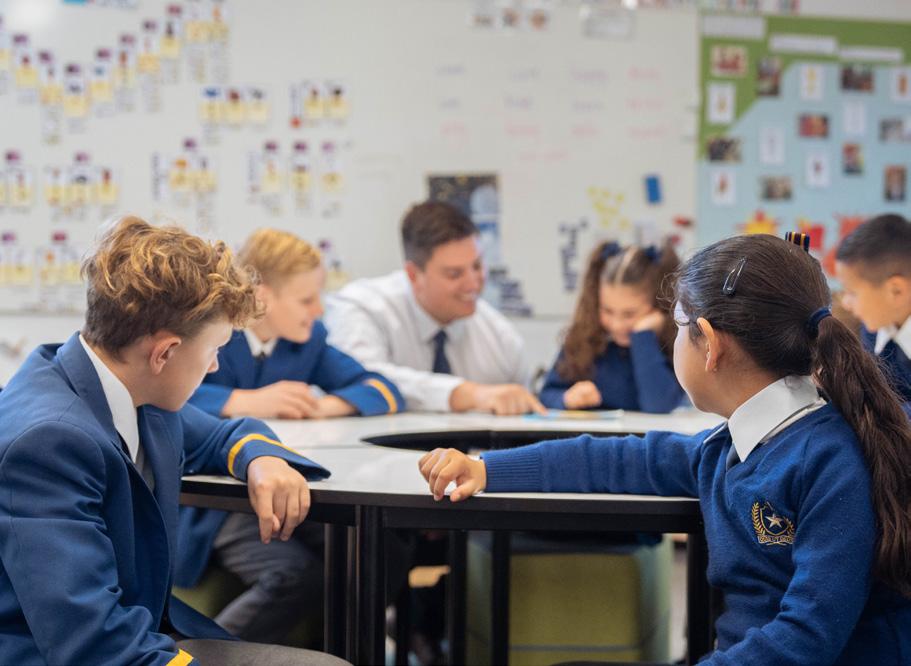
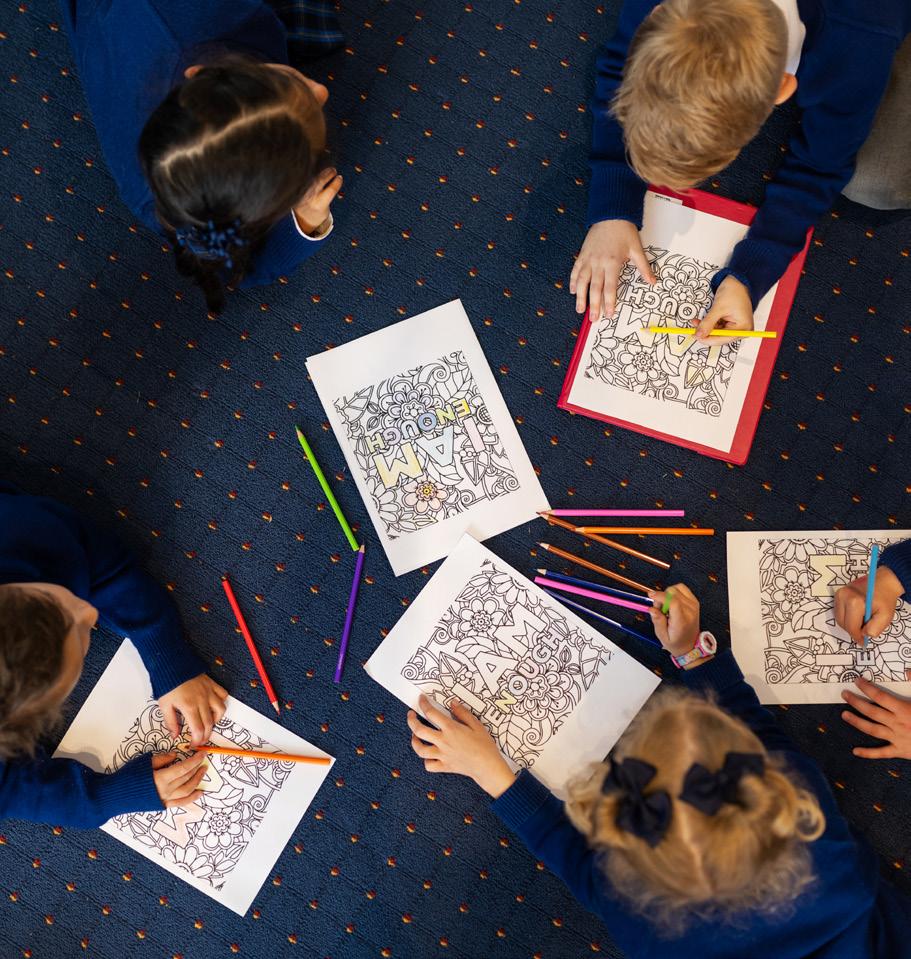
We were very pleased to celebrate the SACE achievements of the Class of 2023 and the release of their ATAR scores. The College congratulates all the students for their hard work, determination, resilience, and commitment, and acknowledges the vital role of their teachers in their 13-year educational journey. Year 12 2023 SACE Results Summary
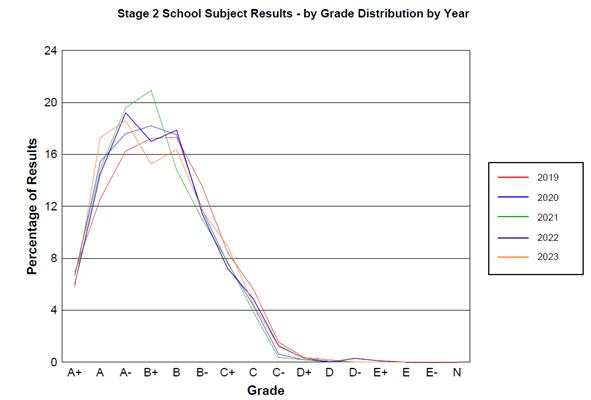

• An outstanding 42% of all grades allocated were in the A Band.
• 452 A grades were achieved with 83 students scoring three or more A’s.
• 26 students achieved an A grade in five Stage 2 subjects studied.
• 28 students achieved an A grade in four Stage 2 subjects studied.
•
St Michael’s College continues to provide a broad selection of Year 12 subjects ensuring that the needs of a diverse cohort of students are considered. This year, students completed 50 different Stage 2 subjects contributing to their SACE completion. Of those 45 were Tertiary Admissions Subjects (TAS) and five were non-TAS subjects. We also had 4 students successfully complete approved University subjects as part of their Year 12 experience in 2023.
Our gratitude is extended to the parents who supported their children, and to the teachers, both Year 12 and throughout the College, for their dedicated efforts in assisting students to achieve such fine results.
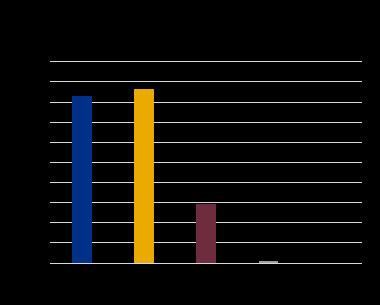
Qualifications completed by Certificate Level in 2023
The graduating cohort of Year 12 students in 2023 was of a larger size than in past years with 227 students. Of this cohort, 100% achieved their SACE and 86% of students selected subjects eligible for an ATAR. The growth in VET participation over the last few years has stabilised with around 60% of the cohort participating in a VET course from Years 10 - 12.
Students who were engaged in a SchoolBased Apprenticeship during their final year of schooling stabilised around 4.5% with 14.5% of students securing an Apprenticeship.
The majority (68%) of students applied to SATAC for consideration for a University TAFESA pathway.
100% were offered a course of study in 2024 with 98% receiving an offer to their first or second preference.
In terms of University Course category areas, there continued to be a strong interest in: Health and Medical Sciences - 25%, Humanities/ Psychology - 11.5%, Law - 11.5 %, Engineering - 10%, Business and Economics - 10.3% and a decline into Education and Teaching with 7.5% attracted to that category.
Popular courses included Engineering, Psychology, Allied Heath (Physiotherapy, Occupational Therapy, Speech Pathology and Paramedics), Law, Architecture, Computing, Science and Exercise Science. There was an overall decline into Business, General Health (not Allied Health), Music, Performing Arts, Occupational Therapy, Teaching and Creative Arts.
In this category we again saw a significant increase in the percentage of students seeking employment over study (32%). Of those employed, there were more students in secured formal apprenticeships and traineeships (14.5%). In terms of industries, those that pursue trades are largely employed in the Construction Industry followed by Automotive Electrical and emerging Aviation. The very attractive government subsidies for apprenticeships in 2023/4 and the strength of the construction industry in 2023/4 are clearly reflected in so many apprenticeships being secured.
An extraordinarily successful year in terms of the destination pathways of our 2023 cohort. It is reassuring to see more students move into the promising fields of STEM. The success of our VET program is also to be celebrated with such strong outcomes in terms of securing Apprenticeships.








St Michael’s College benefits greatly from a highly engaged parent community. Regular feedback is invited each year through parent and teacher interviews following term reports, weekly newsletters, year level parent information sessions and a diverse guest presenter education program. Parents share in the development of many areas of the College including, cocurricular sports and arts programs, College events and the Parent and Friends Committee. Parents are also represented as members of the College Board and subcommittee, the Finance, Audit and Risk Management Committee.
During 2023 parents and caregivers were invited to provide feedback in the development of the College’s future guiding document, Strategic Directions 2024 – 2027. In addition, parent and caregiver groups were consulted during the development of the College’s Community Charter, Social Media Policy and Inclusivity Policy.
Enrolment growth is a reliable indicator of community satisfaction. St Michael’s College has seen a distinct increase in enrolments as evidenced by need for building works and infrastructure development, the enrolment of girls and a move to a four-stream system at the Primary campus from 2024. The flow on effect is recognised at the Secondary campus with a Middle and Senior School structure to be adopted from 2024 and the development of a significant capital works program as part of the Master Plan.
Staff satisfaction is gauged through scheduled annual meeting reviews, and regular meetings with line managers. Annual online professional review surveys provide all staff with feedback and the opportunity to reflect on performance, goal setting and professional development.
All staff are provided the opportunity for professional learning that is either recommended by line managers or self-identified. Having a staff retention rate of 96.81% for 2023, is a positive reflection of staff satisfaction with St Michael’s College.
Student feedback is gathered regularly via a number of sources. ORAH Mood Checks have been introduced in the Primary and Secondary settings and provide live data enabling immediate action and follow up by staff.
College wide PULSE and WEC (Wellbeing and Engagement Data Collection) surveys provide valuable insight into College wide, and year level specific student wellbeing.
The 2023 WEC data collection results were affirming as they indicated less low wellbeing indicators in a range of areas including worries, resilience and distress. Indicators for high wellbeing showed steady increase in the construct of school belonging, optimism and life satisfaction.
In comparison to other non-Government schools evidenced in the data, St Michael’s College showed consistently lower incidence of low wellbeing markers across all of the domains including bullying and harassment.
Our students appear happier, more optimistic, experience lower levels of distress and other negative emotions and demonstrate a stronger sense of school belonging and connection to an important adult at school, than the other schools within the comparison. Similarly, there is a higher reporting of high wellbeing across all domains. 90% of respondents indicated high or medium wellbeing indicators in terms of belonging at school, with evidence of a consistent and steady increase over previous years.
ORAH Mood Check Summary
Period: June 2023 - May 2024
Mood check records to date: 7918 (Year 3 commenced use in 2024)
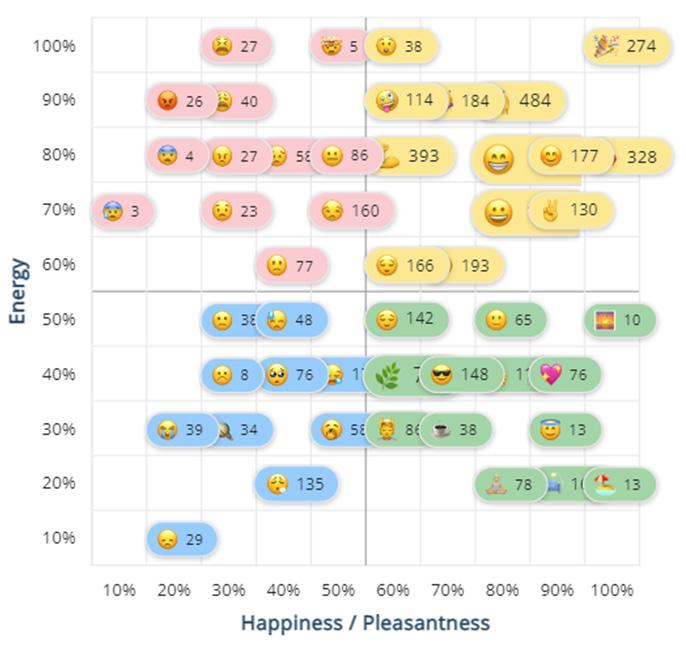
WEC Data
Responses: 1338
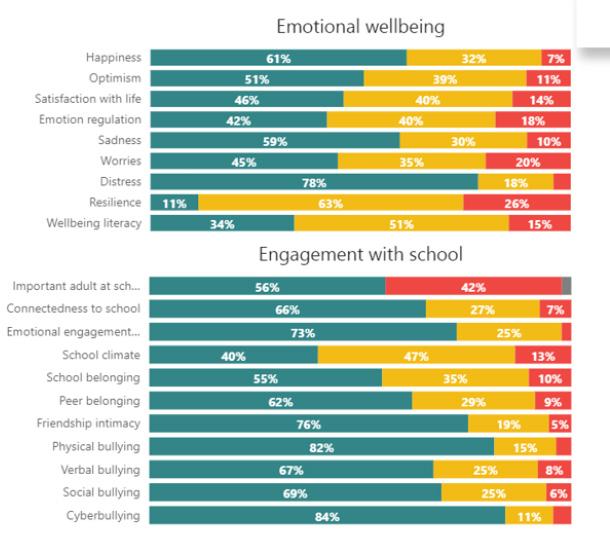
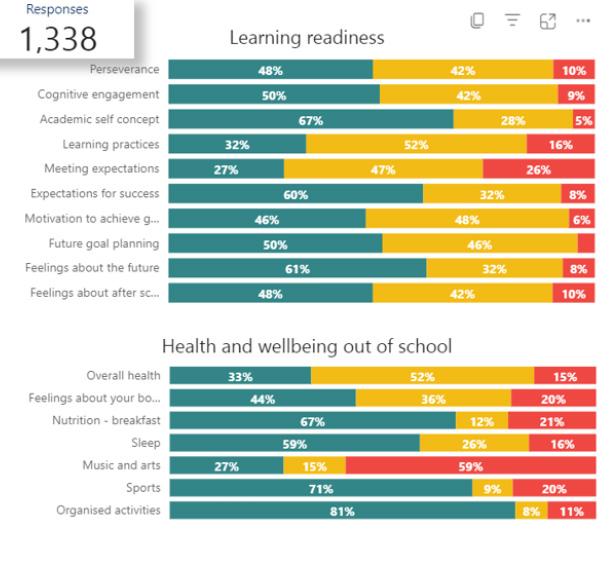

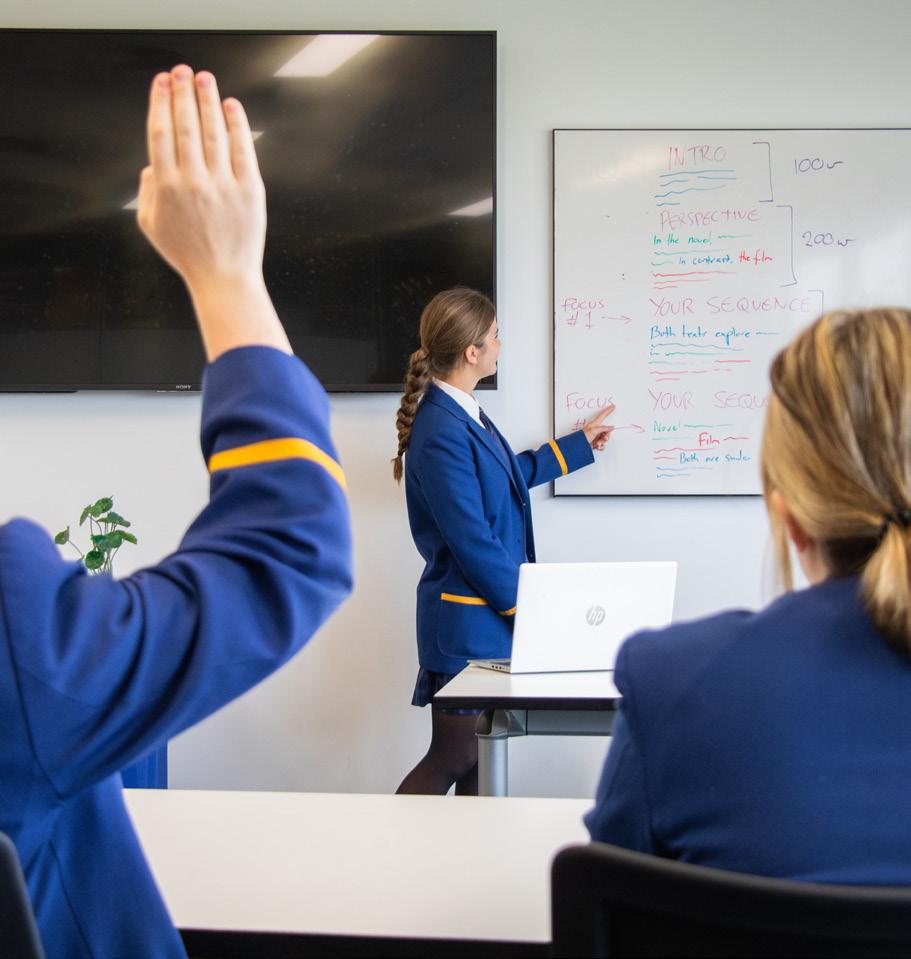
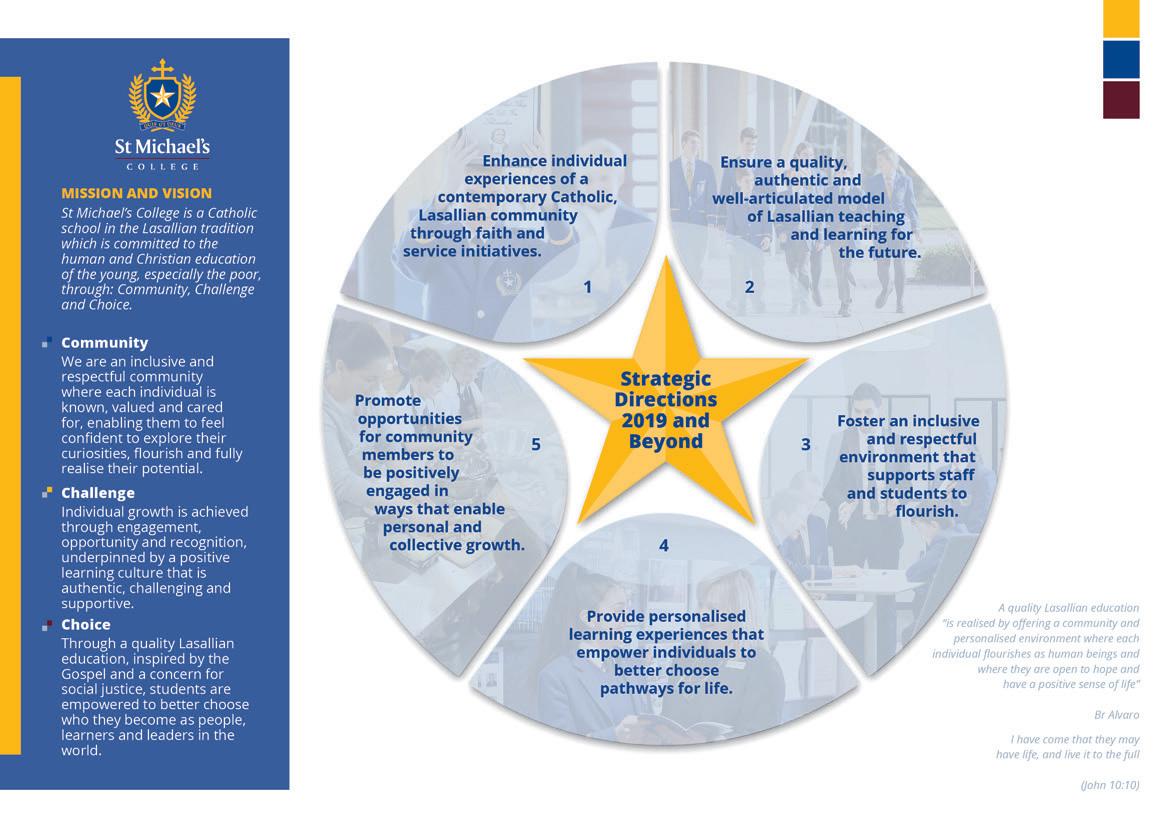
2023 was a year of change for St Michael’s College.
The appointment of new Principal Tony Daley, a renewed College Board with Chair, Damian Foulis and the conclusion of the College's former guiding documents required the Board and Leadership Team to work solidly during 2023 to plan for the future of the College.
Extensive consultation involving the College Board, staff, students, and parents facilitated the identification of seven new Strategic Directions, each comprising their own 5-7 Priorities. The production of the St Michael’s College Strategic Directions 2024 - 2027 overarching document led to the development of both a Teaching and Learning Framework (R – 12) and a Pastoral Framework (R – 12) approach to formalise the Strategic Priorities within these areas.
Appointments were made during 2023 to support the middle school and senior school structure of the Secondary campus for the commencement of 2024. A Leader of Learning English/HaSS was appointed for the Middle School together with a Leader of Learning Mathematics/Science. Further appointments included the Director of Middle School (Years 7 – 9) and Director of Senior School (Years 10 – 12). In addition, a Deputy Principal Head of Secondary was also appointed.
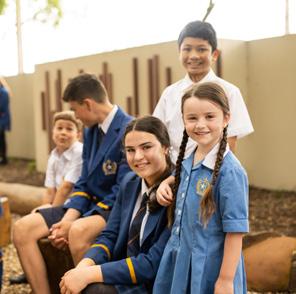

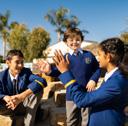
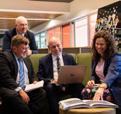




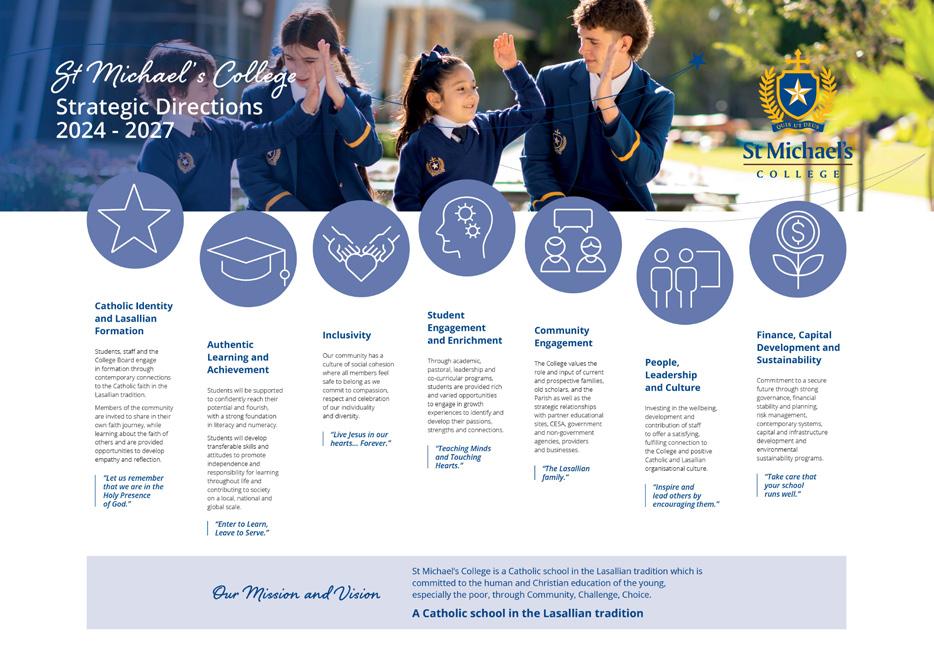
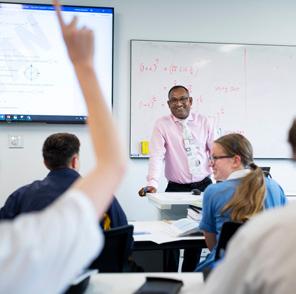


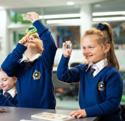
• In the Teaching and Learning space, planning for the implementation of Track One in 2024 progressed so that diagnostic testing and results can better inform decision making and learning strategies in the classroom.
• The Clarity Learning Suite approach was implemented to collect qualitative data from students about their learning environment to inform school improvement.
• Review of the whole school curriculum was undertaken based on the release of ACARA Version 9.
• VET offerings remain popular with access provided to Year 10 students to ‘Try a Trade’ earlier in the year and nontraditional career pathways in construction for females was successfully promoted.
• In the Primary setting, a wholecampus approach to reading and writing was led by a literacy consultant and key teachers trained as coaches to support others.
• Inclusivity was a key focus for the Pastoral arm of the College. Students participated in community events, assemblies and focus days to celebrate difference and the richness this brings to our College.
• The importance of student safety is a key focus with the installation of floor to ceiling cubicles and an indoor air quality and vapor detection system in our student toilets to ensure best possible safety and comfort for our students.
• Data informed strategies based on WEC and Pulse surveys together with the trial of the Orah moods platform provided holistic wellbeing support to our student community.
• The breadth of co-curricular opportunities continued to develop with growth in the Eco Squad, Breakfast Club, Art, Games and Homework Clubs. Co-curricular sports were also popular with significant success in local, state and national competitions.








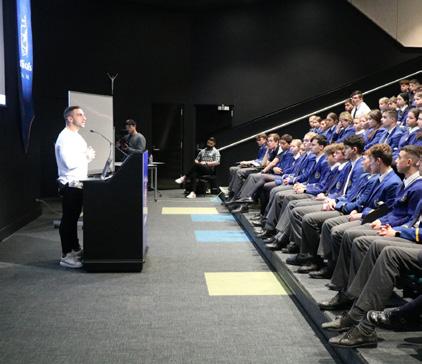




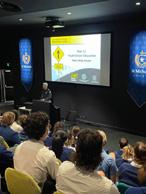
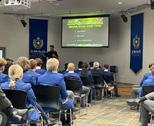





• Once again the quality of local and nationally recognised guest speakers ensured our students, staff and families have access to the most up to date information on trends and strategies to support the wellbeing of young people.
• Operationally, a 10-year financial plan was presented to the College Board, the capital development plan was budgeted for in financial forecasts, and an automated financial, debtor and enrolment model was successfully introduced.
• A new human resource platform solution was investigated, and trials will begin in 2024.
• An ICT Strategy Road map was developed to guide the College in the next four years of growth, capital development and future proofing.
• Stage 2A works at the Primary campus were completed in Term 1 and Sarah Constructions subsequently commenced 2B works during Term 2. This development, which incorporates a new Performing Arts Centre, Music Tutorial rooms, 4 additional general learning areas, (GLA’s) and the refurbishment of 7 GLA’s for senior Primary students. The Stage 2B works is expected to be completed by the start of Term 2 2024.
• With the surge in the enrolment demand at the Primary campus the Board announced the approval of Stage 3 works as part of the Primary campus masterplan which will enable the College to accommodate the future growth and development of the Primary campus to support an enrolment capacity to 750 students by 2031.
• The Stage 3 works will provide; 4 additional general learning areas (GLA’s) with break out spaces, refurbishment of the existing middle Primary GLA’s and a new Administration and Staff Centre.
The sustained high interest in enrolment, affirms the holistic and comprehensive educational experiences offered by St Michael’s College, cementing its status as the school of choice in Adelaide’s Western suburbs.

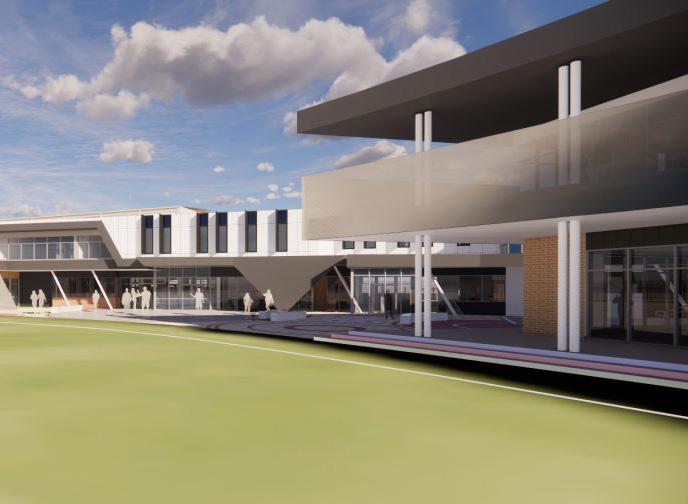
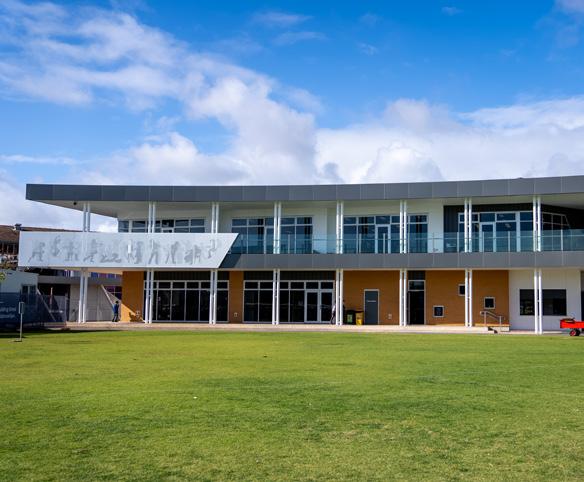
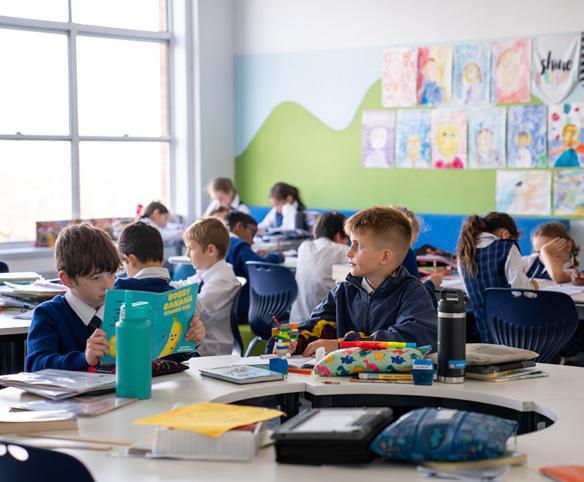
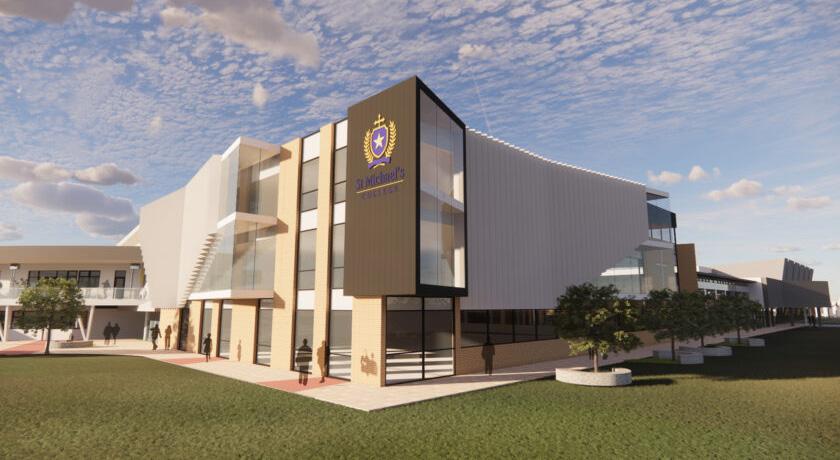
A+ to E- Grades used for all subjects in Years 7 to 10
A band Excellent achievement of what is expected at this year level
B band Good achievement of what is expected at this year level
C band Satisfactory achievement of what is expected at this year level
D band Partial achievement of what is expected at this year level
E band Minimal achievement of what is expected at this year level
F No work has been submitted, a score of zero has been obtained
NA Not Assessed
Student achievement is referenced against the Australian Curriculum Achievements Standards in a learning area or subject being studied. Demonstration of performance is required when making judgments about the standard and outcomes. Finer grade level distinction is made using + or – i.e. A+, A, A-
A+ to EGrades used for Year 11 subjects and the PLP (Year 10) and Grades used for SACE STAGE 2 subjects
A to E Grades used when reporting to the SACE Board at Stage 1 (Year 11)
P
P for Pending may be used for the following compulsory SACE Stage 1 subjects: English (Literacy), Mathematics (Numeracy), and the PLP as well as Research Project - a compulsory SACE Stage 2 subject
Performance Standards, provided in each Subject Outline, are used to assess and report student achievement. These standards describe in detail the level of achievement required to obtain each grade at Stage 1 and Stage 2.
Years 7 to 10 students completing Individual Education Plan
Subjects (Learning Support) work on tasks designed to meet negotiated outcomes. Parents/Caregivers are informed of this process at the implementation stage.
Year 11 students complete an adjusted Stage 1 Learning and Assessment Plan. They may have restrictions placed on their Stage 2 subject choices.
Years 7-11: Each subject will have a number of indicators, two of which are Application to Study and Behaviour in Class The other indicators are designed specifically for each Learning Area using the Achievement Standards (Australian Curriculum, Years 7-10), and Performance Standards (SACE Stage 1 Subject Outlines) and will therefore vary from subject to subject.
Year 12: Each subject will have Application to Study and Behaviour in Class as indicators, as well as an individual written comment.
Subject Indicators will have the following levels:
• Excellent • Good • Satisfactory
• Inconsistent • Unsatisfactory
Application to Study refers to the student’s overall commitment, in-class participation (questioning and responding, collaborative learning, learning through individual and group work), and the ability to focus in class, take responsibility for learning, self-evaluate and self-manage homework, revision, wider/extra reading, attention to detail, determination, and initiative to extend the boundaries of personal knowledge of the subject.
Excellent Completes all set tasks and meets deadlines. Highly motivated, works diligently in class.
Good Completes all set tasks and meets deadlines. Works very well in class.
Satisfactory Generally completes tasks, meets deadlines and works well in class.
Inconsistent Often not on task, fails to meet some deadlines. Needs to show more selfmotivation
Unsatisfactory Poor concentration and self-motivation with little application to study
Behaviour in Class refers to the student’s interaction with other students and teachers in the classroom setting, analogous with common politeness, courtesy, the following of instructions for the keeping of good order, and particularly in being a positive influence on the community as a whole.
Excellent Listens carefully to and complies with teacher instructions, is courteous, considerate and respectful of others
Good Good level of cooperation and conduct in class. Is respectful of others
Satisfactory Usually co-operative with appropriate conduct most of the time
Inconsistent On too many occasions is uncooperative towards others. Attitude needs significant improvement
Unsatisfactory Often uncooperative, with a poor attitude towards the teacher, other students and the learning program
YEARS 7-10: Upon request, the College can provide information that clearly indicates your child’s achievement in comparison to that of other students in your child’s peer group at St Michael’s. This information will indicate the number of students in each of the achievement levels A-E.
smcprimary@smc.sa.edu.au